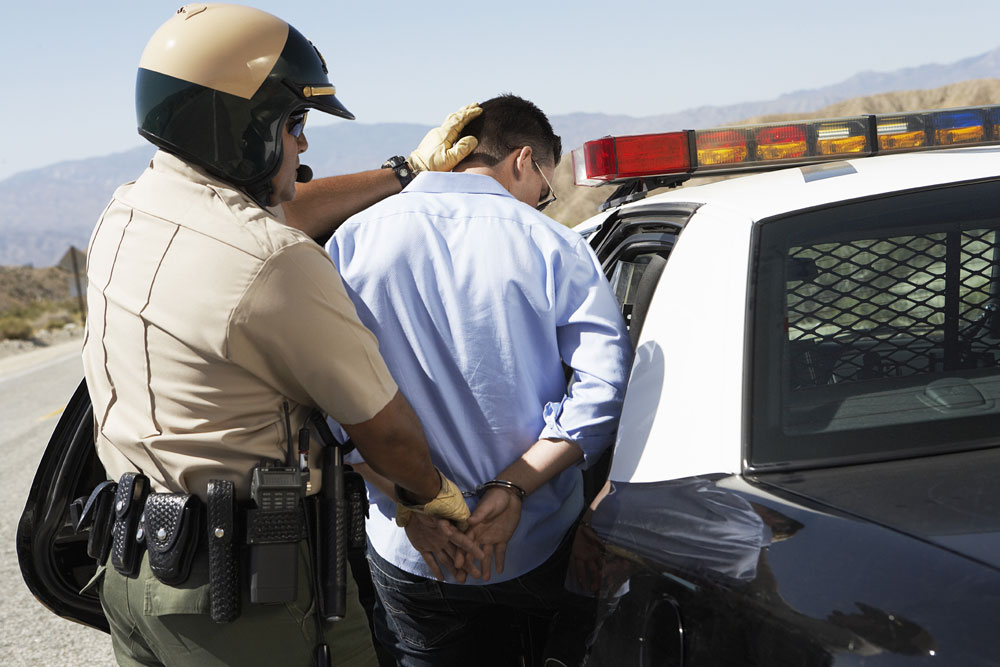In reality, you probably do not know what your Miranda rights actually are. In real life, police do not read Miranda warnings to every person they arrest, nor are they required to.
In this article you will learn some of the basics of Miranda rights, including:
- What your Miranda rights are,
- Where Miranda rights come from,
- How you invoke your Miranda rights, and
- What happens when the police do not read your Miranda rights to you.
Miranda Rights Explained
Miranda rights are intended to protect all of us from coercive interrogation techniques that are often employed by law enforcement (and that may lead to wrongful arrests and convictions). They are based on your Fifth Amendment rights to remain silent and to legal counsel during an interrogation.
1. What are your Miranda rights?
Many police officers carry a card that they will read from that includes language like:
You have the right to remain silent. Anything you say can and will be used against you in a court of law. You have the right to an attorney and have him/her present with you while you are being questioned. If you cannot afford an attorney, one will be provided for you. Do you understand the rights I have just read to you? With these rights in mind, do you wish to speak to me?
There is no “magic formula,” and police are not required to use any specific language, but the language must include some form of the following statements:
- You have the right to remain silent;
- If you talk, anything you say can be used against you;
- You have the right to an attorney;
- You have the right to have your attorney present while you are being questioned; and
- If you cannot afford an attorney, one will be provided for you prior to questioning.
The two main points here are 1) you have the right to remain silent – you do not have to answer questions or make any statements, and 2) you have the right to an attorney.
Although police are required to tell you that an attorney will be appointed for you, that doesn’t mean you will immediately be appointed an attorney who will sit with you as the police question you. The key takeaway here is that you should remain silent, not answer questions, and then consult with your attorney later if and when you qualify for appointed counsel.
2. Why are they called “Miranda Rights?”
The Miranda warnings are the result of a 1966 case called Miranda v. Arizona, where the US Supreme Court announced the rule that police must inform suspects of their rights before questioning.
The rule is designed to protect the public against coercive interrogation tactics that are used by law enforcement to extract confessions from suspects. It’s worth noting that these tactics include not only physical threats or torture but also psychological tactics that are widely employed by law enforcement and which have been proven to result in false confessions.
3. When do police have to read Miranda rights to you?
Miranda warnings are only required when 1) you are in custody and 2) you are being questioned by law enforcement.
Unless you are being arrested for DUI, police are not required to read your rights to you when you are arrested.
4. What does “in custody” mean?
What does “in custody” mean?
If you are at your home and you are having a conversation with a police officer at your door, you are probably not in custody. If you voluntarily came to the police station for questioning but have not been arrested or charged with anything, you are probably not in custody.
If you are in a jail cell, you probably are in custody. If you have been arrested and handcuffed, you probably are in custody. If you are detained on the roadside after a traffic stop, you might be in custody, but it’s a bit more complicated.
Are you free to go? If you’re not sure, just ask the officer if you are free to go. Although an “investigative detention” on the roadside may not be considered “in custody” by the courts, what if you are in handcuffs and surrounded by multiple police officers with drawn weapons?
5. What is questioning and interrogation?
If law enforcement is asking you questions, you are being interrogated.
If you are volunteering information that is not in response to a question by law enforcement, you are not making a statement “in response to interrogation.” Even if you are in custody – you have been arrested, charged, and are now at the detention center, Miranda does not apply unless you are making statements in response to questions by law enforcement.
6. How do you invoke your Miranda rights?
You must invoke your Miranda rights to benefit from them.
Our U.S. Supreme Court Justices have ruled that citizens have the right to refuse to answer questions.
Therefore, if you want to invoke your Miranda rights, you must do so clearly and unequivocally:
You: “I want my lawyer. I am invoking my Fifth Amendment right to remain silent.”
Officer: “Why would you want an attorney unless you have something to hide?”
You: “I want my lawyer. I am invoking my Fifth Amendment right to remain silent.”
Officer: “Look, I’m just trying to clear your name here by getting some basic information.”
You: “I want my lawyer. I am invoking my Fifth Amendment right to remain silent.”
Officer: “Listen, your buddy is in the next room blaming everything on you right now and your only chance to save yourself is to talk to us.”
You: “I want my lawyer. I am invoking my Fifth Amendment right to remain silent.”
You can invoke your Miranda rights at any time, even if you have already begun answering questions. On the other hand, if you do not clearly and unequivocally invoke your Miranda rights, law enforcement can continue questioning you and your statements could later be admissible in court.
7. How do you waive your Miranda rights?
You waive your Miranda rights by not invoking them.
You waive your right to remain silent by talking, and you waive your right to an attorney during questioning by not asking for an attorney.
In most cases, police investigators will not only read your Miranda rights to you, but they will provide you with a “Miranda form” that contains each of your rights, they will ask you to initial each of them individually, and they will have you sign the form at the bottom.
If you do not 1) refuse to sign the form and 2) invoke your rights by asking for an attorney and telling the officer you do not wish to answer questions, then you have waived your rights and any statements you make could be admissible against you later.
8. Will my case get dismissed if the police did not read my Miranda rights?
If you are charged with DUI in SC, your case may get dismissed if the police did not read your Miranda warnings to you on video – that’s a special requirement of SC’s mandatory videotape law that applies only in DUI cases.
In all other situations, your case is not likely to be dismissed because the police did not read your Miranda warnings. They are only required to read Miranda warnings before they question you, and then only if you are in custody.
Even if police question you while you are in custody without first reading your Miranda warnings, the remedy is not dismissal of your case. The result is that you may be able to get any statements that you made excluded – they cannot be used against you in the courtroom – which may help your case.
Questions About Your Miranda Rights?
If you have been charged with a crime or if you are under investigation for a crime in SC, you need an experienced criminal defense attorney on your side immediately – before you are questioned by police or prosecutors.
Call defense attorney Jennilee Pirtle at 843-970-2929 or contact us through our website to find out how we can help.
Questions? Speak With Jennilee.





Recent Comments